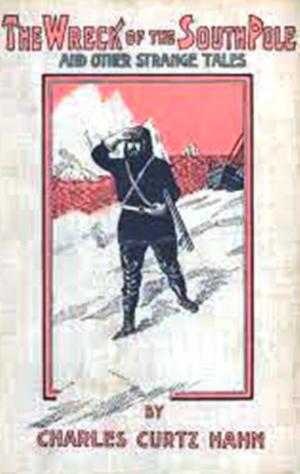| Author: | Edward Bulwer-Lytton | ISBN: | 1230000144629 |
| Publisher: | WDS Publishing | Publication: | June 24, 2013 |
| Imprint: | Language: | English |
| Author: | Edward Bulwer-Lytton |
| ISBN: | 1230000144629 |
| Publisher: | WDS Publishing |
| Publication: | June 24, 2013 |
| Imprint: | |
| Language: | English |
SIR,--It has long been my ambition to add some humble tribute to the
offerings laid upon the shrine of your genius. At each succeeding book
that I have given to the world, I have paused to consider if it were
worthy to be inscribed with your great name, and at each I have played
the procrastinator, and hoped for that morrow of better desert which
never came. But 'defluat amnis',--the time runs on; and I am tired of
waiting for the ford which the tides refuse. I seize, then, the present
opportunity, not as the best, but as the only one I can be sure of
commanding, to express that affectionate admiration with which you have
inspired me in common with all your contemporaries, and which a French
writer has not ungracefully termed "the happiest prerogative of genius."
As a Poet and as a Novelist your fame has attained to that height in
which praise has become superfluous; but in the character of the writer
there seems to me a yet higher claim to veneration than in that of the
writings. The example your genius sets us, who can emulate? The example
your moderation bequeaths to us, who shall forget? That nature must
indeed be gentle which has conciliated the envy that pursues intellectual
greatness, and left without an enemy a man who has no living equal in
renown.
You have gone for a while from the scenes you have immortalized, to
regain, we trust, the health which has been impaired by your noble labors
or by the manly struggles with adverse fortunes which have not found the
frame as indomitable as the mind. Take with you the prayers of all whom
your genius, with playful art, has soothed in sickness, or has
strengthened, with generous precepts, against the calamities of life.
[Written at the time of Sir W. Scott's visit to Italy, after the
great blow to his health and fortunes.]
"Navis quae, tibi creditum
Debes Virgilium . . .
Reddas incolumem!"
"O ship, thou owest to us Virgil! Restore in
safety him whom we intrusted to thee."
You, I feel assured, will not deem it presumptuous in one who, to that
bright and undying flame which now streams from the gray hills of
Scotland,--the last halo with which you have crowned her literary
glories,--has turned from his first childhood with a deep and unrelaxing
devotion; you, I feel assured, will not deem it presumptuous in him to
inscribe an idle work with your illustrious name,--a work which, however
worthless in itself, assumes something of value in his eyes when thus
rendered a tribute of respect to you.
THE AUTHOR OF "EUGENE ARAM."
LONDON, December 22, 1831.
SIR,--It has long been my ambition to add some humble tribute to the
offerings laid upon the shrine of your genius. At each succeeding book
that I have given to the world, I have paused to consider if it were
worthy to be inscribed with your great name, and at each I have played
the procrastinator, and hoped for that morrow of better desert which
never came. But 'defluat amnis',--the time runs on; and I am tired of
waiting for the ford which the tides refuse. I seize, then, the present
opportunity, not as the best, but as the only one I can be sure of
commanding, to express that affectionate admiration with which you have
inspired me in common with all your contemporaries, and which a French
writer has not ungracefully termed "the happiest prerogative of genius."
As a Poet and as a Novelist your fame has attained to that height in
which praise has become superfluous; but in the character of the writer
there seems to me a yet higher claim to veneration than in that of the
writings. The example your genius sets us, who can emulate? The example
your moderation bequeaths to us, who shall forget? That nature must
indeed be gentle which has conciliated the envy that pursues intellectual
greatness, and left without an enemy a man who has no living equal in
renown.
You have gone for a while from the scenes you have immortalized, to
regain, we trust, the health which has been impaired by your noble labors
or by the manly struggles with adverse fortunes which have not found the
frame as indomitable as the mind. Take with you the prayers of all whom
your genius, with playful art, has soothed in sickness, or has
strengthened, with generous precepts, against the calamities of life.
[Written at the time of Sir W. Scott's visit to Italy, after the
great blow to his health and fortunes.]
"Navis quae, tibi creditum
Debes Virgilium . . .
Reddas incolumem!"
"O ship, thou owest to us Virgil! Restore in
safety him whom we intrusted to thee."
You, I feel assured, will not deem it presumptuous in one who, to that
bright and undying flame which now streams from the gray hills of
Scotland,--the last halo with which you have crowned her literary
glories,--has turned from his first childhood with a deep and unrelaxing
devotion; you, I feel assured, will not deem it presumptuous in him to
inscribe an idle work with your illustrious name,--a work which, however
worthless in itself, assumes something of value in his eyes when thus
rendered a tribute of respect to you.
THE AUTHOR OF "EUGENE ARAM."
LONDON, December 22, 1831.















